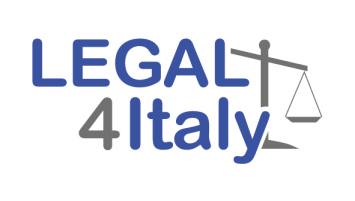Italy is the cheapest place to die in Europe according to Legal4Italy’s Alessandro Taddei.
Alessandro runs a firm from Rome, dealing with a variety of British and other foreign clients on a range of subjects including wills and probate as well as house purchase.
According to Alessandro, the inheritance rules in Italy are significantly different to those in the UK. While the provision for children is often contested in the UK, Italian law requires a mandatory legal inheritance for the children, spouse and ascendants. People can also choose to write their will themselves.

Alessandro said: “In Italy, it is quite different compared to the UK, here we have heirship; when you write a will you need to respect the compulsory share for the different categories of heir: your spouse, children and ascendants, so there is that if you write the will or not.
“When you write your will, you can write it with a Notary and it’s called a public will, but it’s not mandatory as you can write it yourself, orthographic. It must be handwritten but this is perfectly valid. People often write it themselves to keep costs down, but you don’t have the legal advice.
“If you don’t there is intestacy. There is the law which decides which is the share of the heirs, that each heir has the right to help. And again, the heirs by law are the spouse, the children, then ascendants and their siblings.
“But there is a significant difference to the forced heirship – only spouse, children and ascendants ar forced heirs while with intestacy and succession, there are even siblings, nieces or nephews. The heirs by law are more than forced heirship.”
Alessandro also says that currently the UK is in a more complicated state when it comes to inheriting from Italy as it is not signatory to the EU succession regulation.
Alessandro continued: “In August 2015 there was the EU succession regulation. It binds 25 of the 28 member states of the European union. The only states which opted out are UK, Ireland and Denmark. So, the position of the UK is quite tricky because it’s not clear if UK has to be considered a member state in the EU or a third party state as they opted out.
“In case of a brexit, we here hope it doesn’t happen of course, this position probably doesn’t change a lot. Probably. But it is very early now to give an opinion on that, because even in the case of the UK leaving the EU, there are so many treaties and regulations that the UK has to re-discuss with the European countries that it is difficult to say what will happen.
“This regulation is brand new, it’s less than one year old so we don’t have any court cases or even the doctrine or professors or juries, we are still debating if the UK is classed as a member state or a 3rd state. So this is why I think it is very early and very difficult to say whether it will change anything or not.
“With the EU succession regulation, it’s important to understand that a good solution for people is to make a choice of law, when they go to a professional for a will. According to the new regulation, the law applicable to a succession is the habitable residence of the deceased at time of death. This is a big change because before it was nationality.
“So for at least the 25 states that opted in, the applicable law is residence. But the succession law says you can choose your national law in your will. So the new law isn’t perfect, probably the best advice to give a client is to choose the law of your nationality if you want it, of course. This could be important for a British citizen if you want to avoid the forced heirship in Italy. Although I know on the other hand, in the UK, succession taxes are very high, higher than in Italy. There is a flat rate here, which is why we say Italy is the cheapest place to die.
“This is why I know, in the UK people tend to set up a trust for this reason, trying to avoid the taxes to children as I know there is a flat rate but for children it’s expensive. But for CEOs and children, it’s the same, one million euros per head. 95% of Italians don’t pay inheritance tax. We pay different taxes, but much less on succession tax. If you have real estate in your name when you die there are taxes on properties but not on succession.
“This is why, what I know, in the UK people tend to set up a trust for this reason, trying to avoid the taxes to children as I know there is a flat rate but for the child it is expensive. But in children, bosses and children it is the same, 1 million euros per head. 95% of Italians don’t pay inheritance tax. We pay different taxes, but much less than succession tax anyway. We have different, if you have real estate in your name when you die, taxes on properties but not on succession.”



















